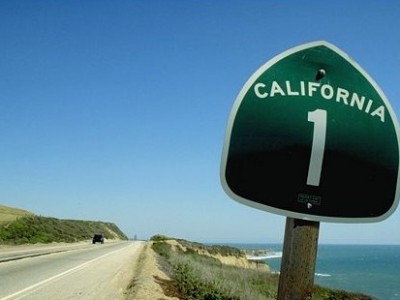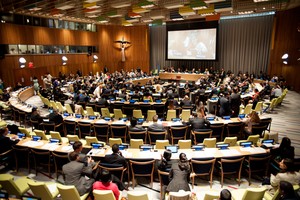Energy
Not My Default
With California’s AB 2145, legislators try to keep cities and counties from buying green power.
It is well-understood that people don’t change easily. I hold myself out as Exhibit A. When I signed up for landline phone and internet service, the phone charge was $35 per month, and the internet another $30. Over the years, although the phone company never announced a rate increase, I experienced rate creep. What once …
Continue reading “Not My Default”
CONTINUE READINGCompiled Resources on the “Clean Power Plan” Proposed §111(d) Rule
All LegalPlanet resources on regulation of GHGs under 111(d), plus critical EPA resources and other valuable analyses
Today, EPA officially published the Clean Power Plan, the agency’s proposed rule to regulate power plant greenhouse gas emissions under Clean Air Act § 111(d), initiating a public comment period that will close on December 1, 2014. I have taken this as an opportunity to compile all of the various LegalPlanet resources on regulation of …
Continue reading “Compiled Resources on the “Clean Power Plan” Proposed §111(d) Rule”
CONTINUE READINGBP Spill + 4
Four years ago, the BP Deepwater Horizon was still gushing oil. The well was finally capped in mid- July. There’s been a lot of legal action since then, but it’s hard to keep track of all the piecemeal developments. Here’s quick rundown. The Presidential Commission investigating the spill identified the “root causes” as management failures by industry and …
Continue reading “BP Spill + 4”
CONTINUE READINGPART III – EPA’s Proposed 111(d) Rule: Some Insights & Open Legal Questions
The third in a series of posts offering some initial insights and observations, and posing several open legal questions for conversation
This is the third in a series of posts offering some initial insights and observations, and posing several open legal questions related to EPA’s proposed 111(d) rule. (See the first and second posts.) Over the course of this series, I welcome our knowledgeable and insightful LegalPlanet audience to join the dialogue in the comments. What …
Continue reading “PART III – EPA’s Proposed 111(d) Rule: Some Insights & Open Legal Questions”
CONTINUE READINGPART II – EPA’s Proposed 111(d) Rule: Some Insights & Open Legal Questions
The second in a series of posts offering some initial insights and observations, and posing several open legal questions for conversation
This post is the second in a series of posts offering some initial insights and observations, and posing several open legal questions related to EPA’s proposed 111(d) rule. (See the first post here.) Over the course of this series of posts, I welcome our knowledgeable and insightful LegalPlanet audience to join the dialogue in the …
Continue reading “PART II – EPA’s Proposed 111(d) Rule: Some Insights & Open Legal Questions”
CONTINUE READINGLegislative Tantrums Over EPA’s Proposed Carbon Rule
Politico reports that eight state legislatures have passed bills protesting EPA’s proposed power plant regulation, in at least one case refusing to comply with any eventual regulations. This was a childish tantrum rather than an adult response. The ultimate hope, according to Politico, is that many states will refuse to submit compliance plans, and that this …
Continue reading “Legislative Tantrums Over EPA’s Proposed Carbon Rule”
CONTINUE READINGCalifornia, climate change, and 111d
Four things the Golden State will note about EPA’s power plant proposal
Here are four aspects of the 111d proposal of particular note to Legal Planet’s home state. (1) California played a key role in helping to inspire — and to justify as lawful — EPA’s building-blocks approach to setting state goals. EPA frequently refers to California’s suite of successful greenhouse gas mitigation programs as a partial model for …
Continue reading “California, climate change, and 111d”
CONTINUE READINGEPA’s Proposed 111(d) Rule: Some Insights & Open Legal Questions (PART I)
The first in a series of posts offering some initial insights and observations, and posing several open legal questions for conversation
As LegalPlanet reported earlier this week, EPA has released a proposed rule to regulate carbon dioxide (CO2) emissions from existing power plants under Clean Air Act § 111(d). You can read the full text of the proposed rule here. The rule would have the overall effect of reducing CO2 emissions from existing power plants or “electric generating units” …
Continue reading “EPA’s Proposed 111(d) Rule: Some Insights & Open Legal Questions (PART I)”
CONTINUE READINGObamacare’s lessons for the future of EPA’s CO2 rule
The survival of the greenhouse gas rule depends on how much people invest based on it
There has (rightly) been a lot of attention paid to the EPA proposed rule controlling greenhouse gas emissions from powerplants pursuant to Clean Air Act Section 111(d). All of that analysis – how effective the rule will be; how it will be implemented; the prospects for successful legal challenges to the rule – is important. …
Continue reading “Obamacare’s lessons for the future of EPA’s CO2 rule”
CONTINUE READINGDo EPA’s Carbon Emissions Rules Point to a New Climate Treaty? Nope.
The Future Global Climate Regime Will Not Rely on an International Accord
The irrepressible Jonathan Chait continues to do what he does best: shredding the GOP’s neanderthal nihilism on climate (or as Andrew Sullivan notes, the Republican Party has become “a reckless, know-nothing, post-modern fantasy machine.”). But Chait makes one big leap of logic that should actually be scotched. Chait points out that contrary to conservative predictions that …
Continue reading “Do EPA’s Carbon Emissions Rules Point to a New Climate Treaty? Nope.”
CONTINUE READING







